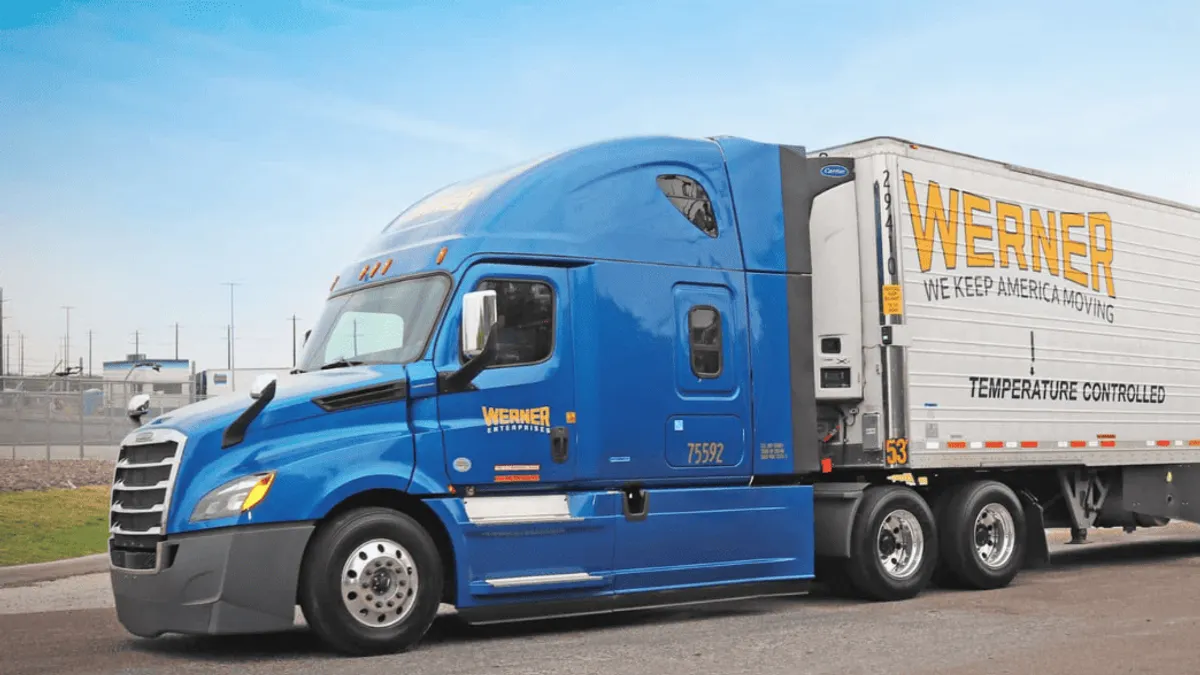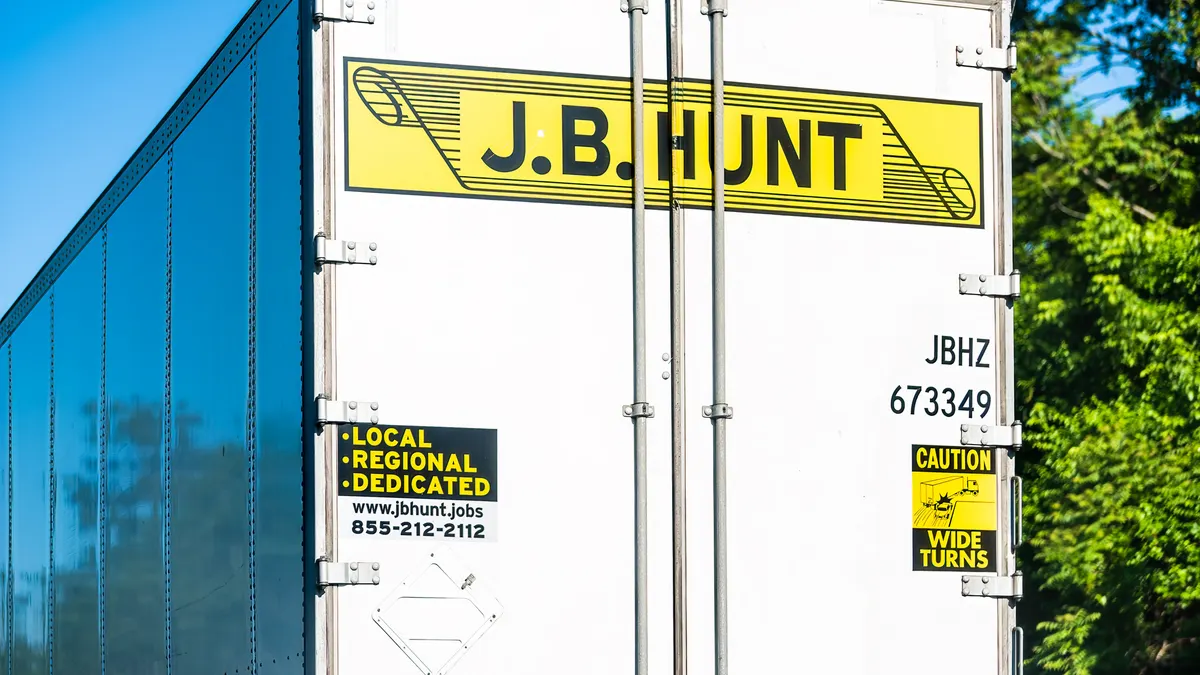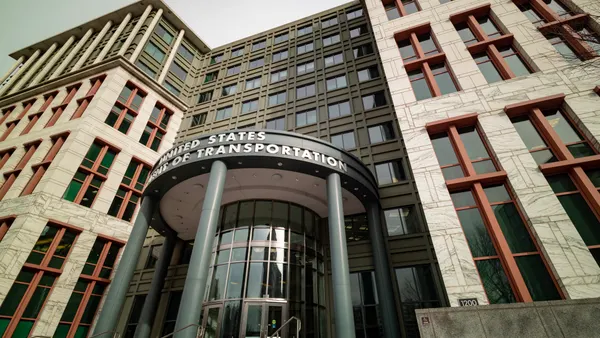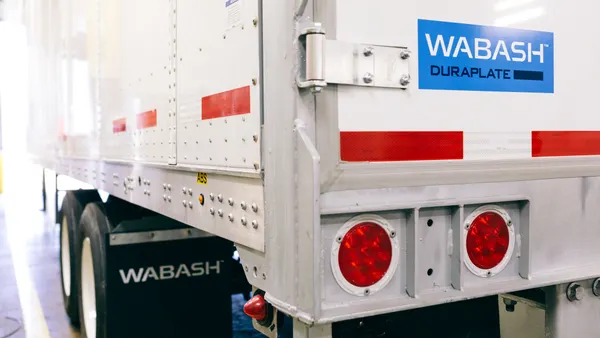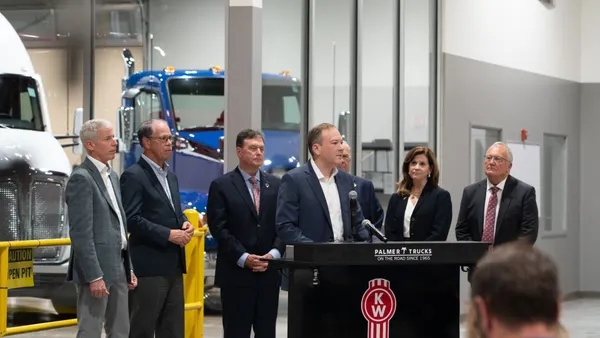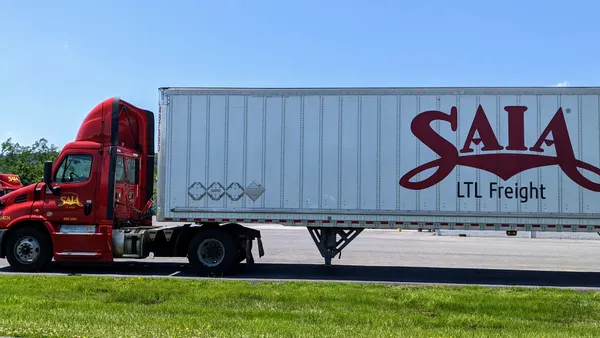Dive Brief:
- Werner Enterprises reported a $5.8 million operating loss in Q1 as it battled timid customer activity fueled by tariff uncertainty, according to its latest earnings report.
- Conversations with suppliers and customers reflect a muddied outlook for the carrier, CEO Derek Leathers said during a Q1 earnings call. Leathers also reported seeing “stop and go” activity from tariff-induced uncertainty.
- However, the company said it expects any short-term tariff impact to be manageable and is confident supply chains won’t shift overnight. Werner also said it trusts its cross-border operations and partnerships with customer and partner carriers.
Dive Insight:
Tariff concerns continue to drive shipper decisions and impact carrier strategies and performance.
Werner reported “isolated operating inefficiencies and lower utilization stemming from select customer decisions” in Q1, according to Leathers. Tariffs are also affecting used equipment gains and transborder freight to Mexico.
The company is considering several strategies to mitigate the impact of higher prices brought on by tariffs, Leathers said on the call. “This includes delaying new tractor purchases and sales, which is feasible, giving our low age fleet and/or shifting purchases between OEMs to those less impacted by tariffs.”
The carrier anticipates equipment and parts costs could rise by single-digit percentages if tariffs persist, said Leathers. However, Werner expects strong demand and higher resale values for used equipment — which was already evident in April — to help offset those increases.
“We are seeing increased values on used equipment as pricing on new equipment is fluid and recently being influenced by tariffs,” Leathers said.
Werner said it has a strong presence in Mexico, where a 25% tariff applies to imports not compliant with the United States-Mexico-Canada Agreement. Its cross-border shipments include manufacturing, industrial, and food and beverage goods.
Trade policy remains uncertain and Werner is keeping a close look on other areas besides Mexico, such as China.
Trade tensions are still present between the U.S. and China, which is changing the flow of cargo moving through some major ports. Leathers said there has been a reduction of inbound freight headed to the West Coast and East Coast from ports in Asia, describing it as an “air pocket.”
“That air pocket will have to be filled to some extent and I think it's only a matter of monitoring and staying close to consumer sentiment and consumer confidence overall to know how much of that pocket gets filled on the backside,” the Leathers said.


